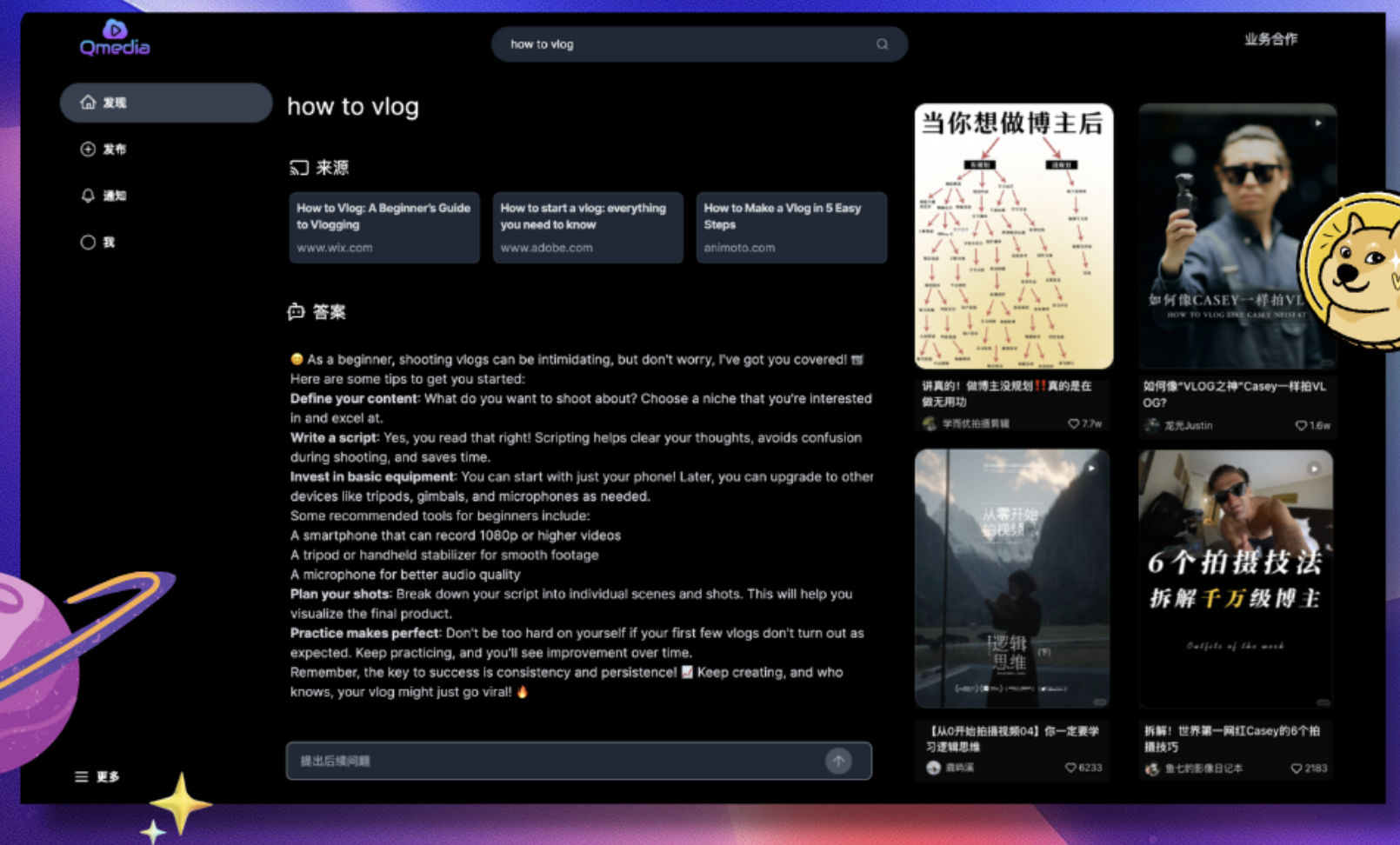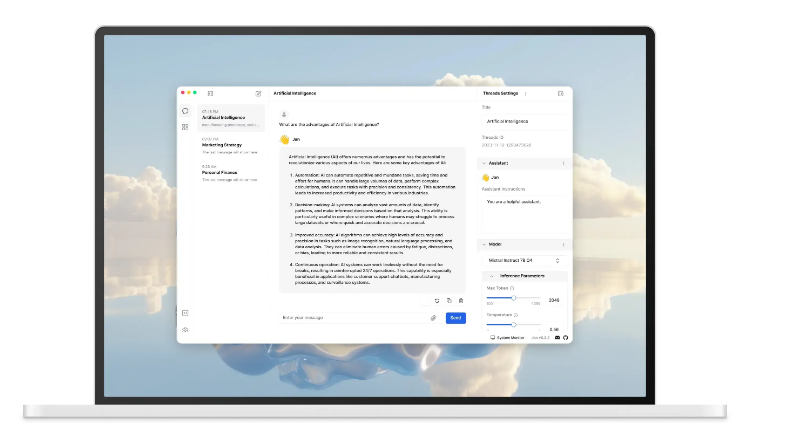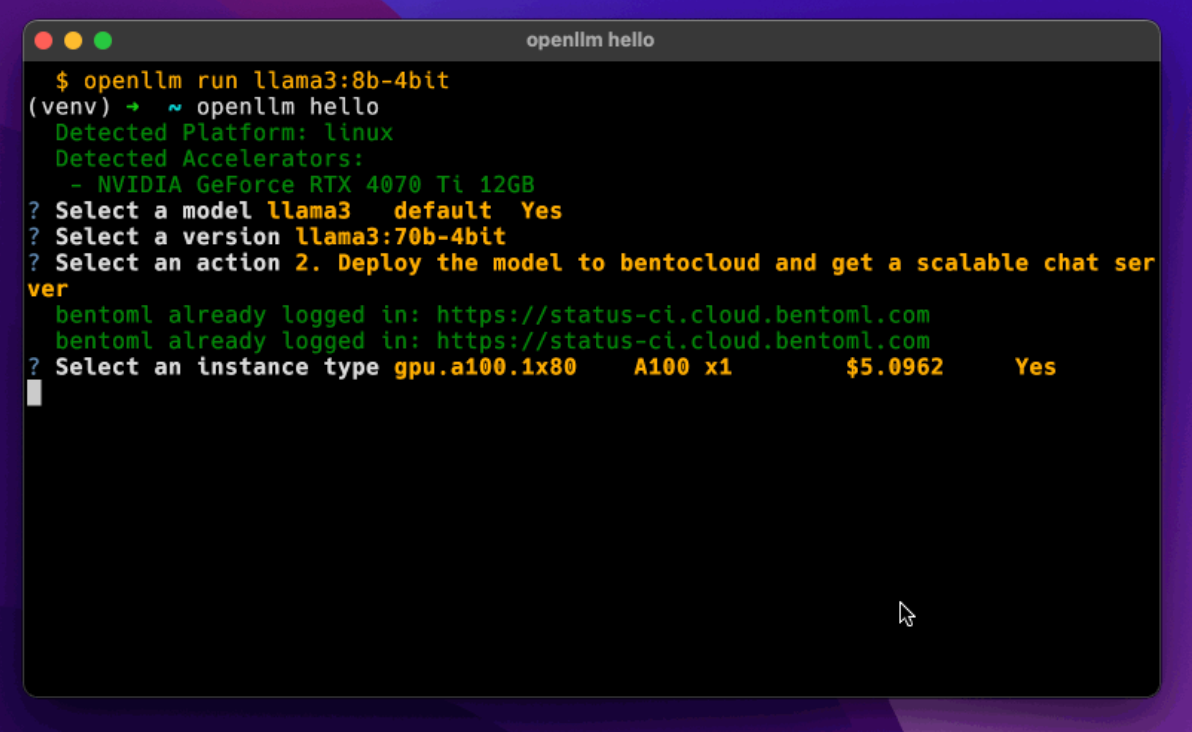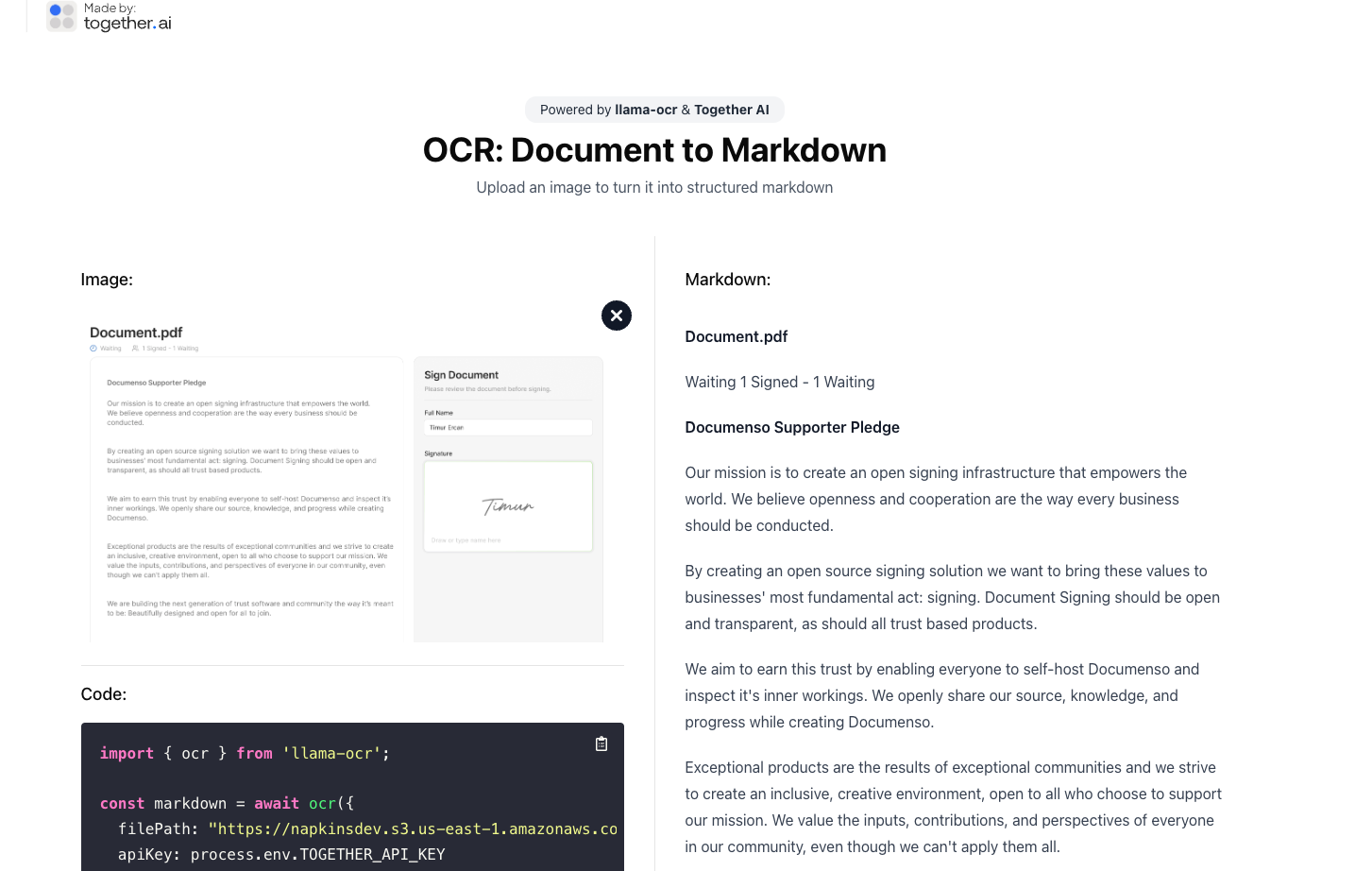17 Open-Source Solutions for Crafting Functional Dynamic AI Agents
Table of Content
An AI agent is simply a computer program that can complete tasks and make decisions on its own. Like a helpful digital assistant, it uses artificial intelligence to understand information, learn from experience, and take appropriate actions to achieve specific goals.
Who uses AI Agents?
Businesses use AI agents to automate routine work and serve customers better. Healthcare professionals employ them to assist with patient care and medical analysis. Online stores utilize AI agents to recommend products and provide customer support. Manufacturers rely on them to maintain equipment and check product quality.
In education, these agents help create personalized learning experiences.
At home, many of us already interact with AI agents through virtual assistants like Siri or Alexa, which help us manage daily tasks and answer questions.
Researchers and developers also work with AI agents to create new solutions that make various processes more efficient.
This technology continues to evolve, making it increasingly valuable across different areas of our lives and work. Would you like me to explain more about how AI agents function in any particular field?
For AI developers, AI agents are essential tools for automating tasks, building scalable systems, and creating impactful, real-world AI applications.

At Medevel.com, we’ve covered dozens of free and open-source AI projects that highlight the versatility and importance of AI agents in modern technology. These resources empower developers to build smarter, more efficient systems that transform industries and everyday life.
Here is our list.
1- SuperAGI
SuperAGI is a free and Open-source framework to build, manage and run useful Autonomous AI Agents.
It comes with a rich set of plugins that include social media integration, ChatGPT plugins, Github and more.
Features
- Provision, Spawn & Deploy Autonomous AI Agents - Create production-ready & scalable autonomous agents.
- Extend Agent Capabilities with Toolkits - Add Toolkits from our marketplace to your agent workflows.
- Graphical User Interface - Access your agents through a graphical user interface.
- Action Console - Interact with agents by giving them input and permissions.
- Multiple Vector DBs - Connect to multiple Vector DBs to enhance your agent’s performance.
- Performance Telemetry - Get insights into your agent’s performance and optimize accordingly.
- Optimized Token Usage - Control token usage to manage costs effectively.
- Agent Memory Storage - Enable your agents to learn and adapt by storing their memory.
- Models - Custom fine tuned models for business specific usecases.
- Workflows - Automate tasks with ease using ReAct LLM's predefined steps.
2- CrewAI
🤖 CrewAI: Cutting-edge framework for orchestrating role-playing, autonomous AI agents. By fostering collaborative intelligence, CrewAI empowers agents to work together seamlessly, tackling complex tasks.
3- AutoGen
AutoGen is an open-source framework for building AI agent systems. It simplifies the creation of event-driven, distributed, scalable, and resilient agentic applications.
It allows you to quickly build systems where AI agents collaborate and perform tasks autonomously or with human oversight.
Features
- Asynchronous Messaging: Agents communicate via asynchronous messages, supporting both event-driven and request/response interaction patterns.
- Full type support: use types in all interfaces and enforced type check on build, with a focus on quality and cohesiveness
- Scalable & Distributed: Design complex, distributed agent networks that can operate across organizational boundaries.
- Modular & Extensible: Customize your system with pluggable components: custom agents, tools, memory, and models.
- Cross-Language Support: Interoperate agents across different programming languages. Currently supports Python and .NET, with more languages coming soon.
- Observability & Debugging: Built-in features and tools for tracking, tracing, and debugging agent interactions and workflows, including support for industry standard observability with OpenTelemetry
4- Expert.js
Experts.js is a powerful yet user-friendly library that makes it effortless to create and deploy OpenAI Assistants. With this tool, developers can seamlessly link Assistants as Tools to build a collaborative Panel of Experts system. These AI agents work together with expanded memory and precision, taking advantage of OpenAI's latest advancements.
This library is built with love and support by Custom Ink | Tech to help developers unlock the full potential of the cutting-edge Assistants API, which revolutionizes how engineers interact with AI models.
Features
- Simplified Assistant Creation: Easy setup with minimal code.
- Multi-Agent System: Link Assistants as Tools for collaborative AI workflows.
- Large Context Window: Supports instructions up to 256,000 characters.
- File and Image References: Use the Thread context for managing knowledge sources.
- Efficient File Search: Vector Store API handles up to 10,000 files per Assistant.
- Tool Integration: Connect up to 128 tools for complex tasks.
- Advanced Model Support: Built for OpenAI's GPT-4o mini model.
- Developer-Friendly API: Clean and intuitive syntax for faster implementation.
- Workflow Orchestration: Ideal for tightly knit, task-specific systems.
5- AgentGPT
AgentGPT allows you to configure and deploy Autonomous AI agents. Name your own custom AI and have it embark on any goal imaginable. It will attempt to reach the goal by thinking of tasks to do, executing them, and learning from the results 🚀.
6- Micro Agent
Micro Agent is a specialized AI tool designed to generate, test, and fix code autonomously. Unlike traditional coding tools, Micro Agent doesn’t just generate code—it iterates on it until it works flawlessly by passing all defined test cases. It bridges the gap between code generation and debugging, making it a powerful assistant for developers.
Micro Agent focuses on solving specific coding problems rather than attempting to be a general-purpose coding assistant. This targeted approach minimizes errors and avoids the pitfalls of general AI agents, which can often spiral into compounding mistakes.
Key principles behind Micro Agent:
- Definitive Test Cases: Generates test cases to validate whether the code works as intended.
- Iterative Debugging: Continuously refines the code until all test cases pass successfully.
7- Agent Protocol
Agent Protocol is a framework-agnostic API standard for serving LLM agents in production. It focuses on three key components: Runs (executing agents), Threads (managing multi-turn interactions), and Store (handling long-term memory). It ensures efficient, organized, and scalable LLM deployment.
8- Anything LLM
AnythingLLM is a versatile, full-stack AI app for creating private, intelligent chat systems using documents. With workspace containerization, it's ideal for AI agent developers needing customizable, multi-user solutions.
Features
- 🆕 Developer can build Custom AI Agents
- 🖼️ Multi-modal support (both closed and open-source LLMs!)
- 👤 Multi-user instance support and permissioning Docker version only
- 🦾 Agents inside your workspace (browse the web, run code, etc)
- 💬 Custom Embeddable Chat widget for your website Docker version only
- 📖 Multiple document type support (PDF, TXT, DOCX, etc)
- Simple chat UI with Drag-n-Drop functionality and clear citations.
- 100% Cloud deployment ready.
- Works with all popular closed and open-source LLM providers.
- Built-in cost & time-saving measures for managing very large documents compared to any other chat UI.
- Full Developer API for custom integrations!
- Much more...install and find out!
9- Letta
👾 Letta is an open source framework for building stateful LLM applications. You can use Letta to build stateful agents with advanced reasoning capabilities and transparent long-term memory. The Letta framework is white box and model-agnostic.
10- TaskWeaver
TaskWeaver is a code-first agent framework designed for planning and executing data analytics tasks seamlessly. It interprets user requests as code snippets and coordinates plugins as functions to execute tasks.
Unlike traditional frameworks, it retains chat, code execution history, and in-memory data, enabling advanced handling of complex data structures like high-dimensional tables.
Features
- Rich data structure - TaskWeaver allows you to work with rich data structures in Python, such as DataFrames, instead of dealing with strings.
- Customized algorithms - TaskWeaver allows you to encapsulate your own algorithms into plugins and orchestrate them.
- Incorporating domain-specific knowledge - TaskWeaver is designed to incorporate domain-specific knowledge easily to improve the reliability.
- Stateful execution - TaskWeaver is designed to support stateful execution of the generated code to ensure consistent and smooth user experience.
- Code verification - TaskWeaver is designed to verify the generated code before execution. It can detect potential issues in the generated code and provide suggestions to fix them.
- Easy to use - TaskWeaver is easy to use with sample plugins, examples and tutorials to help you get started. TaskWeaver offers an open-box experience, allowing users to run it immediately after installation.
- Easy to debug - TaskWeaver is easy to debug with detailed and transparent logs to help you understand the entire process, including LLM prompts, the code generation, and execution process.
- Security consideration - TaskWeaver supports a basic session management to keep different users' data separate. The code execution is separated into different processes to avoid mutal interference.
- Easy extension - TaskWeaver is easy to extend to accomplish more complex tasks with multiple agents as the plugins.
11- AiChat
AIChat is an all-in-one LLM CLI tool featuring Chat-REPL, Shell Assistant, RAG, AI Tools & Agents, and More. It is built using Rust for Rust developers and proven to be fast, and works seamlessly on all popular platforms.
it provides seamless integraton with over 20 leading LLM platforms via a unified interface, including OpenAI, Claude, Gemini (Google AI Studio), Ollama, Groq, Azure-OpenAI, VertexAI, Bedrock, Huggingface, Github Models, Mistral, Deepseek, AI21, XAI Grok, Cohere, Perplexity, Cloudflare, OpenRouter, Ernie, Qianwen, Moonshot, ZhipuAI, Lingyiwanwu, Deepinfra, Fireworks, Siliconflow, Together, Jina, VoyageAI, and any OpenAI-Compatible platforms.
12- uAgents
uAgents is a library developed by Fetch.ai that allows for creating autonomous AI agents in Python. With simple and expressive decorators, you can have an agent that performs various tasks on a schedule or takes action on various events.
Features
- 🤖 Easy creation and management: Create any type of agent you can think of and implement it in code.
- 🔗 Connected: On startup, each agent automatically joins the fast growing network of uAgents by registering on the Almanac, a smart contract deployed on the Fetch.ai blockchain.
- 🔒 Secure: uAgent messages and wallets are cryptographically secured, so their identities and assets are protected.
13- OpenAdapt

OpenAdapt is the open source software adapter between Large Multimodal Models (LMMs) and traditional desktop and web Graphical User Interfaces (GUIs).
14- Sophia
Sophia is an open-source AI agent platform built with TypeScript, designed to streamline tasks and boost productivity. From autonomous agents to AI-powered code reviews, it’s your go-to solution for enhancing workflows, automating processes, and triaging complex issues.
Born from real-world challenges in DevOps and Platform Engineering, Sophia was created to meet the needs of developers managing diverse tech stacks like TypeScript, Python, PHP, and more.
At TrafficGuard, Sophia helps process billions of events monthly, protecting ad spend from bots and invalid traffic. Recognizing the lack of TypeScript-focused AI tools, Sophia bridges the gap, offering seamless integration across tech stacks and architecture.
Features
- Advanced AI Agents: Autonomous agents with reasoning and planning inspired by Google’s Self-Discover paper.
- Memory & Workflow History: Tracks multi-step workflows, function calls, and logic.
- Iterative Task Planning: Hierarchical task decomposition with adaptive control loops.
- Cost-Efficient Execution: Reduces cost and latency via custom XML-based and sandboxed dynamic code generation.
- Function Integrations: Filesystem, Jira, Slack, GitLab, GitHub, and more.
- LLM Support: Works with OpenAI, Anthropic, Gemini, Cerebras, and others.
- Human-in-the-Loop: Budget control, error handling, and agent-initiated questions.
- Flexible Deployment: Run locally, scale-to-zero with Firestore & Cloud Run, or deploy with enterprise SSO.
- Observability: OpenTelemetry tracing for workflows.
- Code Editing Agent: Auto-detects setup, compiles, lints, tests, fixes, and integrates with Aider for iterative editing.
- Software Engineer Agent: Manages repositories, branches, and merge requests.
- Code Review Agent: Posts configurable, line-specific comments on merge requests.
- Interfaces: Command-line and web UI for seamless user interaction.
15- BambooAI
BambooAI is a lightweight library leveraging Large Language Models (LLMs) to enable natural language interactions for research and data analysis. It allows users to analyze data by simply asking questions in plain English, generating Python code and visualizations to provide insights.
The app users can supply their own datasets or let BambooAI source data, integrating internet searches and external APIs for enhanced functionalit
16- EdgeChains
EdgeChains.js is Full-Stack GenAI library. Front-end, backend, apis, prompt management, distributed computing. All core prompts & chains are managed declaratively in jsonnet (and not hidden in classes).
Features
- Simple Setup: Execute GenAI applications with just one script and one jsonnet file.
- Prompt Versioning: Prompts in jsonnet are versionable, diffable, and adaptable.
- Automatic Parallelism: Parallelizes LLM tasks across CPUs, GPUs, and TPUs using WebAssembly runtime.
- Fault Tolerance: Retries and backoffs ensure resilience to system failures.
- Scalability: Supports large APIs, prompt lengths, and vector datasets efficiently.
- Testable Prompts: Declarative prompts enable easy production testing and iteration.
- Prompt Drift Management: Adapts to changes in LLM behavior over time with version control.
- Token Cost Tracking: Built-in fine-grained token usage measurement and optimization.
- Cross-LLM Compatibility: Simplifies adapting prompt chains across different LLMs (e.g., GPT-3.5 vs. Llama2).
17- Windows Agent Arena (WAA)
Windows Agent Arena (WAA) 🪟 is a scalable Windows AI agent platform for testing and benchmarking multi-modal, desktop AI agents. WAA provides researchers and developers with a reproducible and realistic Windows OS environment for AI research, where agentic AI workflows can be tested across a diverse range of tasks.
WAA supports the deployment of agents at scale using the Azure ML cloud infrastructure, allowing for the parallel running of multiple agents and delivering quick benchmark results for hundreds of tasks in minutes, not days.
More Open-source AI Resources?


















